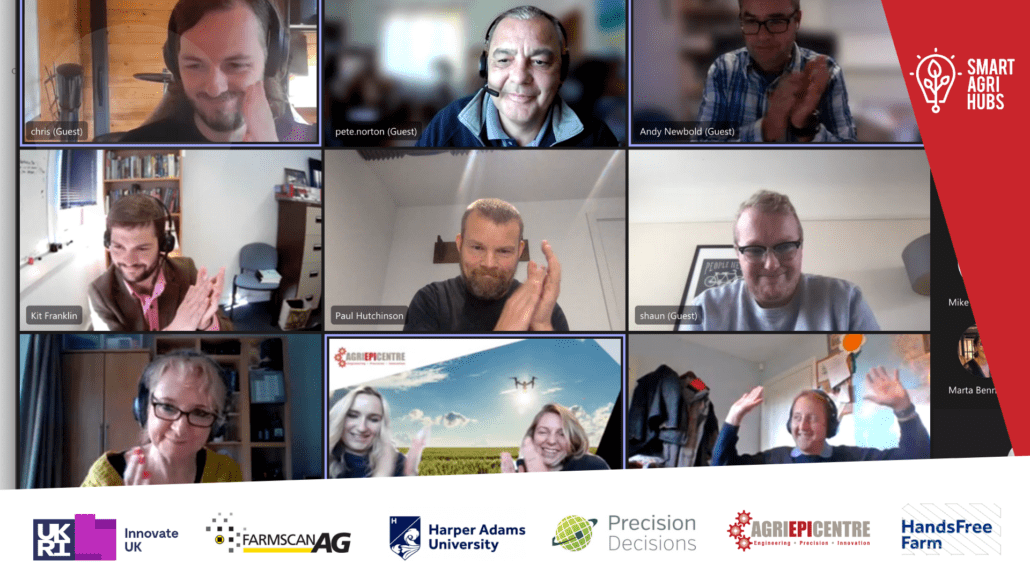
Two very competitive hackathons run by the UK-based Agri-EPI and funded from the European Union’s Horizon 2020 research and innovation programme, through an open call issued and executed under SmartAgriHubs have left a lasting legacy and fostered AgriTech partnerships that will endure well into the future.
Agri-EPI was also supported in its efforts to scope out a third project with various partners and apply for subsequent funding. That expert, multi-disciplinary team is now assembled and the partners are actively seeking funding opportunities to also bring that project to life.
The first 12 hour Hackathon took place in September 2020. The second in September 2021. Eleven teams took part in the 2020 hackathon and the winning teams received a year of product launch support from experts at Agri-EPI Centre which helps to develop, fund, and commercialise new precision agricultural technologies by fostering relationships between researchers, startups, investors, and farmers to bring the latest innovations to reality.
The 2020 entrants were tasked with looking at a COVID response in an animal health and a horticultural setting in an era impacted by a lack of labour mobility, all exacerbated by Brexit. The winners included concepts for a solar powered, zero emission orchard robot from Antobot and Farm Vet Systems’ VetImpress, a remote, digital veterinary diagnosis tools which requires no apps or software installation. The horticulture project in particular continues to grow and collaboration between it and the Agri-EPI Centre are expected to strengthen further into the future.
The 2021 Agricultural Technology Hackathon saw the team collaborate with the Hands Free Farm, a completely automated 35 hectare holding. The challenge posed to Hackathon participants was to addresses safety and security concerns relating to autonomous agricultural vehicles and drones. It brought together a variety of stakeholders from across the industry and decision-making bodies. These included the Health and Safety Executive, academics, National Farmers Union, insurance bodies and more.
They worked together in a workshop to define concerns around safety, security, physical safety, cyber security, control systems and more, which developed the challenge statement for the hackathon. The overall winner, Agribot AI won with a system for detecting people entering and exiting the operational area. Efforts are continuing to bring the solution to market.
Agri-EPI’s New Business & Proposals Manager Rebecca Lewis said they continue to work with many of the Hackathon winners and participants. “This progress would not have been possible without the Smart Agri Hubs/Horizon 2020 funding and support. The Hackathons in particular were really useful in helping raise the profile of the issues impacting the sector, the services, the participants, their solutions and the overall winners.
“From the Hands Free Farm project we also produced a Paper which is still being referenced and discussed and used from an ethics in autonomous farm machines viewpoint. The Hackathons were so successful that we will look at doing more into the future. The projects we were involved with involved relatively small amounts of money and we delivered really good value and return on investment.
“Our legacy from the first Hackathon is the relationship we built with our horticulture winner. The win helped raise their profile and they have since won new projects and we continue to collaborate with them. From the second Hackathon, we’re proudest of the paper we produced and the successes we enjoyed as a team tackling an issue in agri-tech that isn’t as high profile as some – safety and security of technologies.”
Smart Agri Hubs were instrumental in helping Agri-EPI forge very strong and powerful connections, particularly so in an environment in which Brexit could have left them in limbo. Agri-EPI has benefited so strongly from the international collaboration that ensued that it is now looking to collaborate further not just across Europe but around the globe.




